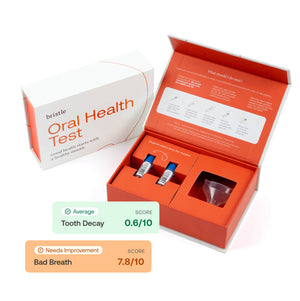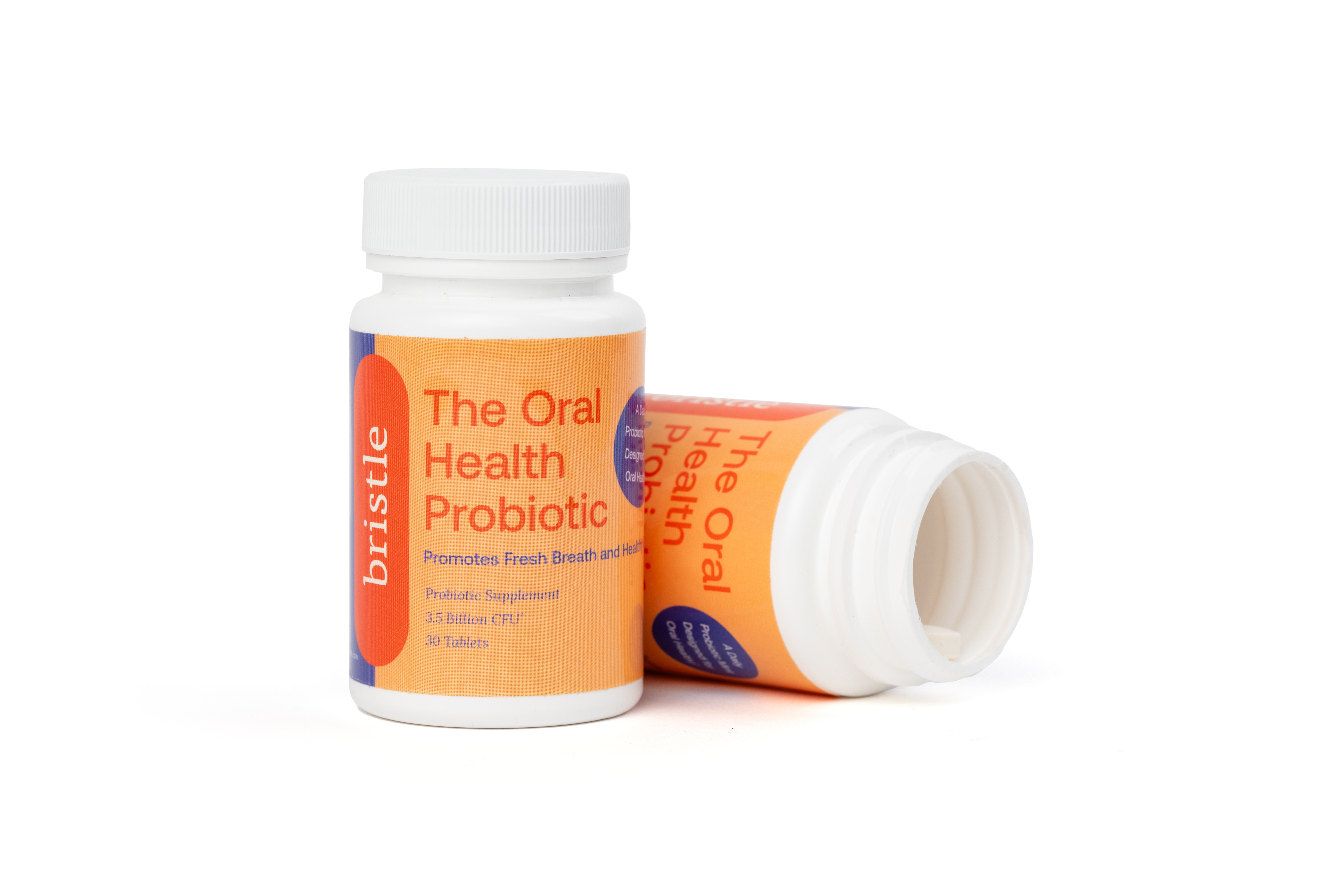You may have always thought of oral health and heart health as two separate categories. Or, maybe you think of physical health and dental health as being different. If that’s the case, these two are much more related than you think!
Learn more about how your oral microbes (microbiome) and heart disease are related and the best ways you can care for your heart by caring for your mouth.
What is an oral microbiome?
Your oral microbiome is the community of microbes (these are specific and unique to every individual) that make their home in your mouth. There is an entire little ecosystem of 700 or more known species of microbes living in your mouth. The microbiota (bacteria and fungi) of our microbiomes help break down food, produce essential vitamins like B12 and K, and fight off infection. Because of the vast number and complex interactions of these microorganisms, our microbiome might even have other benefits that scientists are still working to understand.
What is heart disease?
In medical terms usually referred to as cardiovascular disease, heart disease is a group of disorders of the heart and blood vessels. This includes,
Risk factors
For most cardiovascular diseases, major risk factors have been identified, some of which we can change to help reduce our risk. These include
What is periodontal disease?
Periodontal (“around the teeth”) disease just means disease of the gums. Periodontal disease is surprisingly common, affecting up to 50% of the population. The progression of gum disease starts with gingivitis, a less severe disease that shows up as red and swollen gums that may bleed when brushed or flossed.
If left untreated, gingivitis can evolve into periodontitis, which is an inflammation of the gums that becomes an ongoing infection. Periodontitis is a more severe form of gum disease that can alter normal bone and tissue function and even destroy soft tissue and bone.
Risk factors
The risk for periodontitis will vary from individual to individual. However, there are some habitual/behavioral risk factors that contribute to periodontitis. The best-established risk factor is smoking! In addition to smoking, some evidence points to other, often-connected factors:
Relationship between oral microbiome & periodontal disease
Our oral microbiome can tell us things about our general oral health. Microbiomes always host bacteria and other organisms; however, when the gum or teeth are affected by disease, it will change the chemical balance within the microbiome. Oral bacteria can lead to oral disease when the microbiome is out of balance.
Relationship between oral disease and heart disease
Although you may not immediately associate oral health with heart health, we can learn about both because they influence each other. Scientists and researchers have yet to find a direct link between oral disease and heart disease; however, the relationship between the two is suggestive.
Commonalities of periodontal disease & heart disease
Medical scientists believe we can learn about the connection between these two diseases by looking at their commonalities.
For example, periodontal disease and heart disease are both inflammatory disorders. Meaning that both involve inflammation caused by the body’s natural response to specific triggers (like infectious pathogens). However, in a full-blown inflammatory disorder, the inflammation does not cool down, as it typically would in a normal state after infection, but instead becomes chronic inflammation. Inflammatory disorders involve the immune system and thus happen all over the body. This suggests one reason why there may be a connection between oral and heart disease, as shown, for example, in this research into periodontal disease and atherosclerosis.
Another commonality are the risk factors associated with the two diseases. Specifically, age, smoking, and diabetes all increase a patient’s risk of both gum and heart disease.
Is there a causal relationship?
Although it’s clear heart and gum disease have similarities, the research community is trying to find out if these two are causally related- meaning does one disease cause the other? And if so, which one comes first? Or are they both different symptoms of the same disease process? Most importantly, by preventing one, can you prevent the other?
What research increasingly points to IS a causal relationship, although the relationship may include direct and indirect effects.
Different scientists point to different explanations for the association between oral and heart disease, including:
Oral Bacteremia
Oral bacteremia is when bacteria move from the mouth to the bloodstream, which always leads to the heart. This points to a possible causal mechanism between the oral microbiome and heart disease. Some studies have found oral bacteria in biopsies of heart tissues in people with certain kinds of heart disease.
A well-known, although uncommon, heart problem is infective endocarditis, which directly relates to oral health and the heart. Infective endocarditis is when bacteria from elsewhere in or on the body (the mouth, skin infections, implanted devices) enter the bloodstream ( bacteremia) and infect the heart lining, blood vessels, or heart valves.
Effect on metabolism
Another relationship that oral health and gum bacteria (specifically pathogenic periodontal) influence is your metabolism. Scientists believe that oral bacteria could be involved in disrupting lipid metabolism (how your body metabolizes fats and fatty acids).
In one study, they found that periodontitis can cause metabolic dysfunction due to cytokines (inflammatory signalling chemicals in the blood) sustaining long-term inflammation. This inflammatory disruption can then impact other areas of health.
Another study suggested that periodontal bacteria were involved in cholesterol metabolism by lowering levels of HDL (“good cholesterol”) and that practitioners test bacterial burden (quantity) to predict risk of cholesterol and metabolism problems.
Hypertension
Oral bacteria also is closely related to hypertension (high blood pressure), although why is not yet known. However, research has shown that those with periodontitis are more likely to have higher blood pressure. This may be a reason for higher blood pressure in otherwise healthy individuals.
Regardless of the causes and indirect impacts, hopefully, you can start to see how having a healthy mouth, and a healthy heart are important for your overall health and well-being.
Tips for a healthy mouth
To avoid any oral discomfort and disease and keep your oral microbiome happy and healthy, you can build some simple habits!
Tips for a healthy heart
Similarly, making lifestyle changes can help keep your heart healthy and decrease your risk of heart disease.
Key Takeaways
Caring for your heart and mouth matters! Having a healthy oral environment can help keep you healthier overall. While caring for your heart is equally important. The two have similar ways to mitigate the risk of disease, and either condition can be detrimental to your health.
Your oral microbiome and your heart health could potentially influence each other, so instead of thinking of your oral health as something totally different from physical health, perhaps recognize how holistically caring for one or both can make you healthier!





